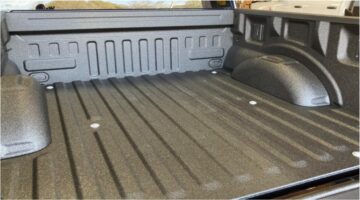Buying a new car is an exciting time. Whether you’re upgrading the size of your vehicle or the available features, you’re getting an entirely new experience. Now that you’ve purchased your new vehicle, there are several things that you should do to make sure it’s street legal and first what you’re looking for. You might have read what to do after buying a two-wheeler, but we can also help you with seven things that you should do after you buy a new car.
Take Care of the Title
The acquisition of your vehicle’s title depends entirely on whether you buy it outright or finance. If you pay for your new car in full, make sure that the dealership gives you the title after you finish signing all the necessary paperwork. You won’t be able to complete the registration of your vehicle without it.
If you’ve chosen to finance your car, the dealership likely won’t give the title. Instead, the organization through which you’ve taken your auto loan will need to hold it as collateral for the loan. This is important information you’ll need to have when it comes time to register your car.
Insure Your Car
If you already have an insurance agent, insuring your vehicle can be as simple as calling them and letting them know you’ve bought a new car. Conversely, you’ll want to shop around and speak with multiple agents or brokers prior to landing with an insurance company. Luxury vehicles, as well as trucks and SUVs, are much more expensive to insure than those made by everyday brands like Ford or Toyota as they’re much more expensive.
Register Your Vehicle
You have a 30-day window to register your new car. Head over to the Department of Motor Vehicles (DMV), or whichever department specializes in registering motor vehicles, and pay the necessary fee to get your car registered. Many states have what’s called a progressive car tax. This means that you’re going to pay more for newer or more expensive cars. For example, if you buy a Chevy sedan, you’re not going to pay as much to register that vehicle as you would an Audi SUV.
Schedule Your First Maintenance
There are few things that will damage your car more than being passive about maintenance. Skipping oil changes, not replacing cabin filters, and neglecting your transmission can lead to long-term issues that are costly to repair. If you have to replace a transmission or rebuild your engine, your vehicle will never be the same. Schedule maintenance with the dealership or your preferred auto shop to make sure it gets done and you stay on top of it.
Get an Extra Key
The last thing you want to do is lose your car keys. Even if your vehicle comes with an extra key, it’s not a bad idea to find a place that will make an extra to have on hand in case you misplace the original. Making a key for your vehicle isn’t as expensive or difficult as you might think. In fact, you can even get a Mercedes key replacement cheap by visiting the right key maker. Furthermore, you can give an extra key to a friend or loved one in case of an emergency.
Search for Recalls
Buying a new vehicle often means that you’re getting the latest and greatest technological advancements. However, this also means that things can go wrong after the vehicle has been driven for a few months. It’s a good idea to check for factory recalls on your vehicle with the NHTSA to ensure that there aren’t any safety systems that are known to fail or other features that aren’t working properly.
If your vehicle does have any recalls, you should take it straight to the dealership from which you bought the car so they can fix the part or portion of the car. This won’t come at any cost to you. If you have trouble with the dealer resolving the issue, contact the manufacturer to let them know and they’ll assist you.
Customize
Before you even drive your car off the lot, you can ask the dealer to make certain upgrades to your vehicle. Features like tinted windows, luggage wracks, and paint protector film don’t come stock on new cars. A dealership should have a service department or parts department that can make these upgrades for you. They’ll help you find the styles and parts that you want to customize your vehicle. You’re going to be spending a significant amount of time in your car, so you might as well have it look and function the way that you want it to.









